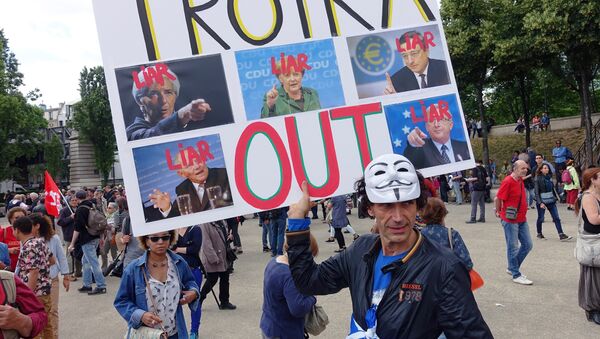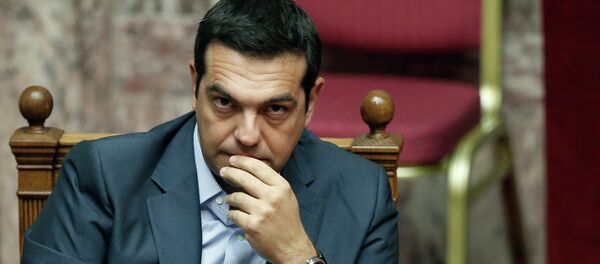Greece’s creditors are demanding Athens guarantees an extra US$4 billion in savings that could be needed in the future if deemed necessary.
The president of the Socialists and Democrats Group in the European Parliament, Gianni Pittella said:
"We cannot ask Greece to take additional measures. This would mean that some 'hawks' want to kill Greece and we cannot allow this blackmail. The stakes are too high for Europe. We should all work to prevent a crisis in Greece in the run-up to the British referendum, especially now that – under extraordinarily difficult conditions – Greece has over-performed on its primary balance target for 2015."
We can't let 'hawks' blackmail Greece. We need an extraordinary #EuroSummit to avoid new euro crisis @giannipittella https://t.co/2xSuS4fGYL
— S&D Group (@TheProgressives) 27 April 2016
He called for an extraordinary Euro Summit next week if the Eurogroup is not able to come up with a way out. "If the Eurogroup cannot find a way out, despite the efforts of the European Commission, then the political leadership of Europe should take the lead at an extraordinary Euro Summit next week. We want a fair deal for Greece which also includes a discussion on debt relief," Pittella said.
Deadlock
Greek Prime Minister Alexis Tsipras Wednesday called European Council President Donald Tusk to demand an urgent summit amid further failures to agree to a new tranche of funding for Athens as part of its third bailout agreement.
Tusk immediately summoned all the Eurozone finance ministers to an emergency meeting, telling reporters: "We have to avoid a situation of renewed uncertainty for Greece. We need a date for a Eurogroup meeting in the not distant future. In days, not weeks".
Tsipras had asked Tusk to call a meeting of all the EU leaders, but Tusk rebuffed his suggestion.
We have to avoid situation of renewed uncertainty for Greece. We need date for Eurogroup meeting in not distant future. In days, not weeks
— Donald Tusk (@eucopresident) April 27, 2016
Eurozone finance ministers were due to meet on April 28 to discuss the Greek reforms needed to unlock the next tranche of money under the bailout deal, but the meeting was called off because of what sources said was a lack of agreement between Athens and its creditors.



